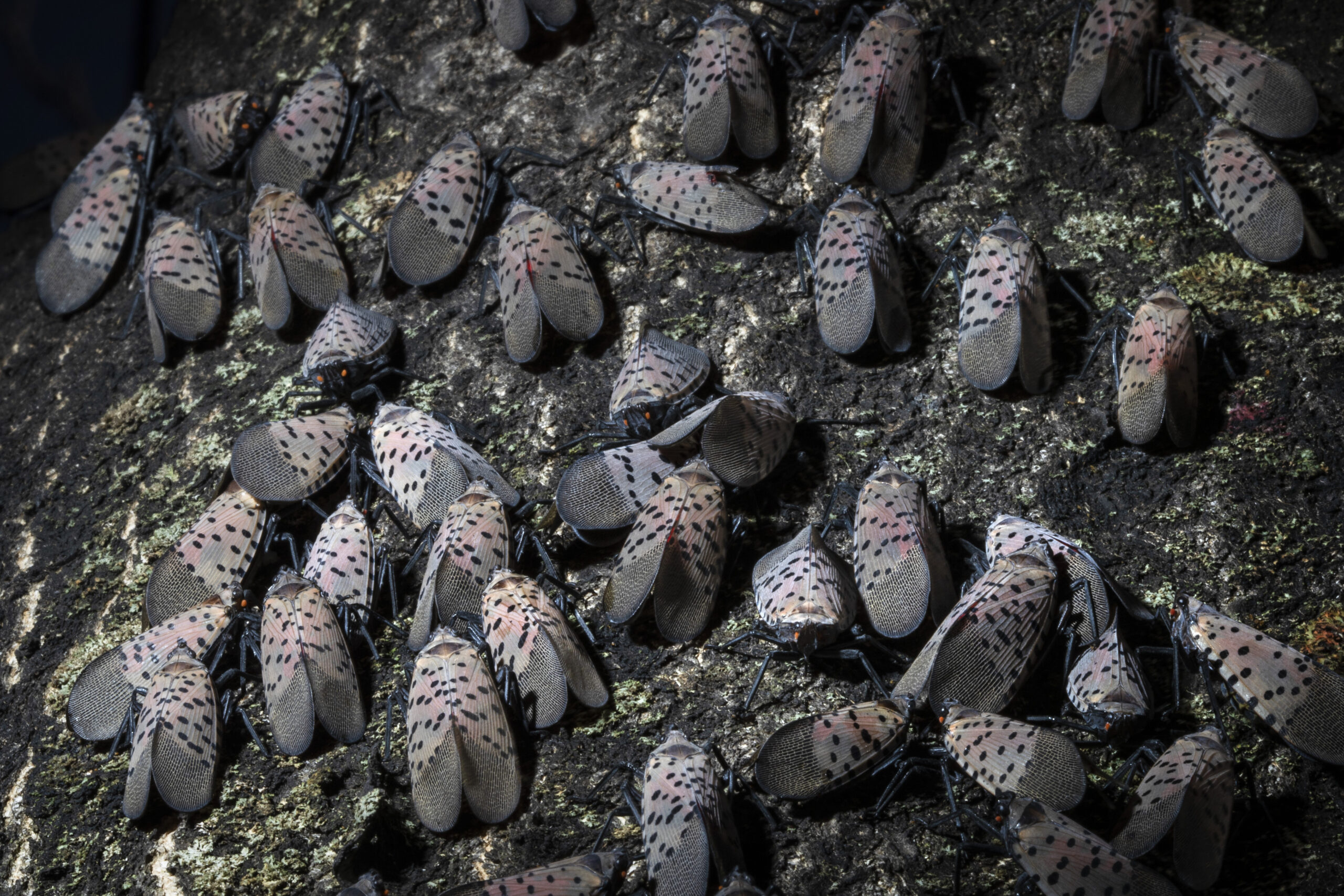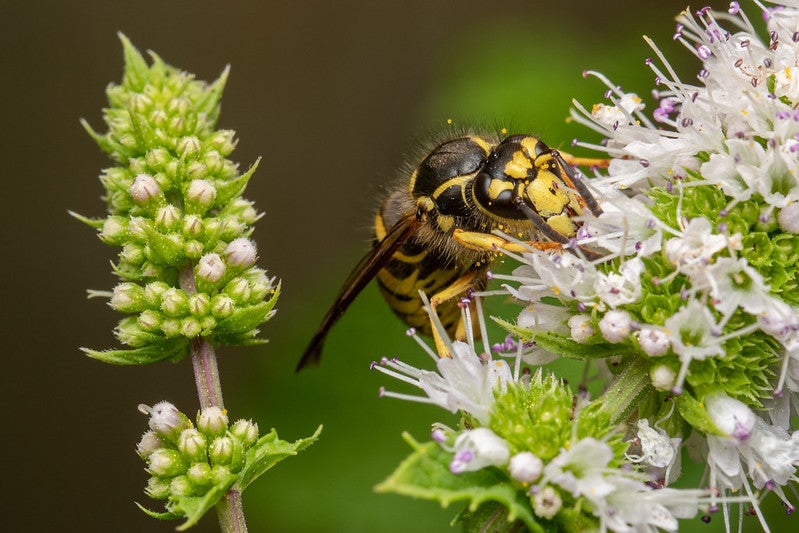Insects, like other creatures, have evolved to have some interesting characteristics. Larry Meiller learns about insects that emit a very distinctive odor.
Featured in this Show
-
That Smell Might Just Be An Insect Protecting Itself
Insects have evolved in some pretty incredible ways to help them stay alive. Some, for example, have developed the ability to emit a foul odor to ward off danger.
Entomologist P.J. Liesch is the manager of the University of Wisconsin-Madison Insect Diagnostic Lab. When discussing odiferous insects, he said, many beetles come to mind.
“There are a number of stink bugs out there that have scent glands and can emit some rather foul-smelling chemicals,” Liesch said.
One that is common in Wisconsin during the winter is the western conifer seed bug, which, not surprisingly, feeds on the seeds of conifers.
“They like to sneak in, hoping to find a place to hunker down for the winter,” Liesch said.
Due to their diet, conifer seed bugs emit what is described as a piney or turpentine-like odor. Bed bugs, on the other hand, do not smell like their preferred food. Instead of smelling like the mammals that they feed on, they give off what is considered a musty scent reminiscent of coriander.
Not all smells emitted by insects are unpleasant, though. Liesch pointed to the larger yellow ant as one example. Those ants live in the soil, he said, so can sometimes be found under the concrete slab of houses. If there is a winter warm-up, they may emerge and swarm, but do not bite.
“They have a very distinctive lemony, citronella scent to them,” Liesch said, which is the origin of their common name, citronella ants.
Liesch said he recently got a sample of citronella ants sent to him, and before they were even under the microscope, he was quite sure of what they were.
“While there aren’t many cases where an insect can readily be identified by its smell, the citronella ant is probably at the top of the list,” Liesch said.
Liesch pointed to a book on the topic of odor-emitting insects that solidified his interest in entomology, “Secret Weapons: Defenses of Insects, Spiders, Scorpions, and other Many-Legged Creatures” by Thomas Eisner.
“It sealed the deal for me. It talks about all kinds of cool chemicals that insects, and spiders, and millipedes, and centipedes can secrete as defensive weapons to protect them from being fed on and preyed upon by other critters. It’s just a fascinating book,” Liesch said.
Liesch often shares entomological research and news about interesting specimens he’s received in the lab through his blog on the lab’s website and through Twitter at @WiBugGuy.
Episode Credits
- Larry Meiller Host
- Judith Siers-Poisson Producer
- Phil Pellitteri Guest
- P.J. Liesch Guest
Wisconsin Public Radio, © Copyright 2024, Board of Regents of the University of Wisconsin System and Wisconsin Educational Communications Board.


